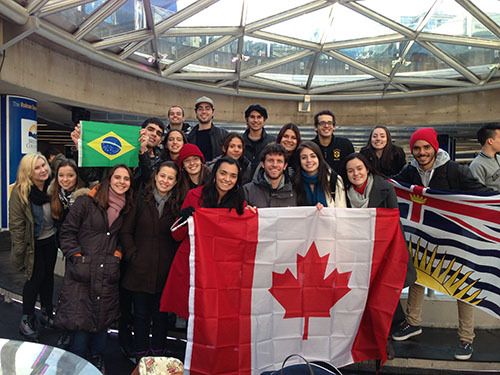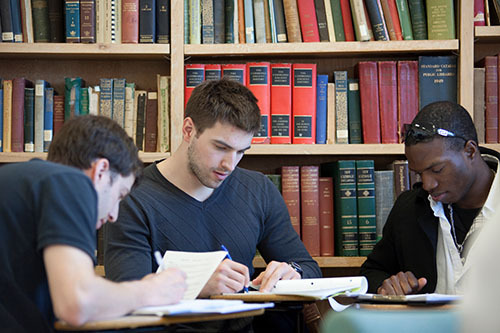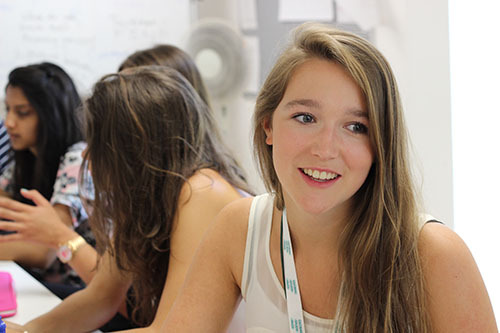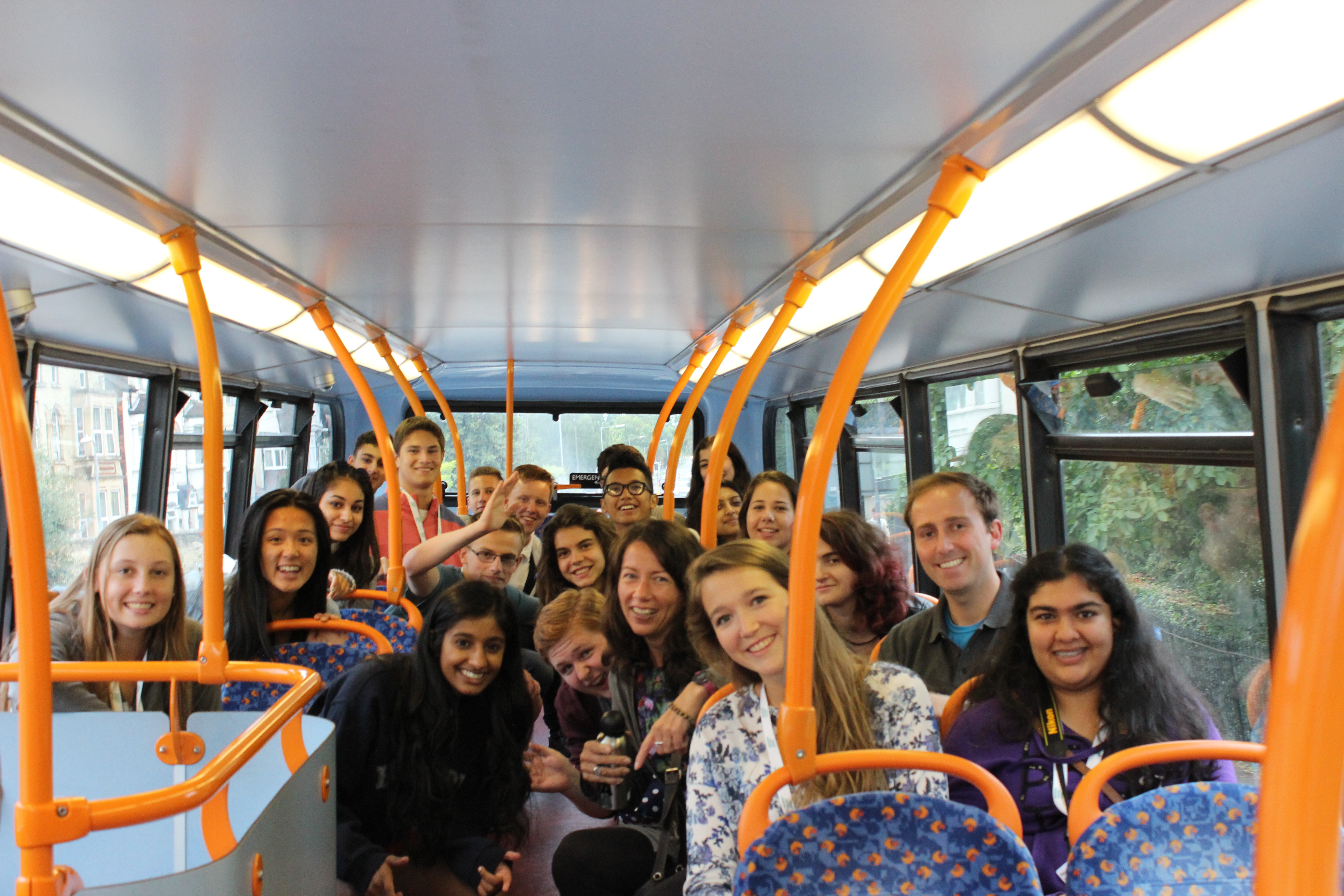
Why are global skills even more critical in today’s world? What does the latest research tell us? Why are Canadian parents, educators and employers taking these skills very seriously?
Call me a global nomad. By the time I was 18, my parents had exposed me to an education in 5 different cultures – a grounding that has become the inspiration for my life’s work. A world view as part of my early learning foundation taught me important global skills which included multilingualism, adaptability, open-mindedness, cultural sensitivity, tolerance, an ability to accept diversity and a predisposition to seek the common ground (diplomacy versus conflict) in every complicated situation I encounter.
So let’s talk about the benefits of global engagement further. In today’s edition of The Global Search for Education, it is my pleasure to welcome Karen McBride, President and CEO of the Canadian Bureau for International Education, Dr. Lynne Mitchell, Director and International Liaison Officer, Centre for International Programs, University of Guelph, and Andy Jkrawczyk, former secondary school principal, international baccalaureate leader and education advisor to Global Study Pass.
Karen McBride: What was the goal of the World of Learning study abroad research?
When CBIE conducted our study abroad research, we were deeply concerned that so few Canadians undertook study abroad as part of their home-based college or university program. Data were hard to come by but we knew that the participation rate was less than modest – generally estimated at no more than 3% for university students and 1% for college students. We wanted to understand why: what were the obstacles, what would spur greater involvement? How were our colleges and universities preparing their students for an interdependent, globalized world? How did the public at large feel about study abroad and who should have access?

Karen, please briefly describe the key findings of this study.
We found that students often started college or university keen to have a study abroad experience sometime during their program, but the majority abandoned the plan later.
Financial concern was reported by most students – not just the extra costs but that they would have to give up their part-time jobs. Many students expressed concern about leaving friends and familiar surroundings. Finally, a substantial number reported concern that their program of study was too tightly scheduled to allow time away, or that study abroad could only be done by extending their program duration.
We also found great examples of institutions finding ways to increase participation, such as offering shorter programs such as field schools, providing bursaries and developing simplified processes to award credit for study abroad. We found that some institutions and educators were making huge strides in helping students understand the connection between future professional success and the study abroad experience.
We discovered that students who had been on an international experience during their secondary years were very likely to participate in study abroad at the post-secondary level. This suggests the critical role that secondary education plays in preparing students for an internationalized community.
Our study also found that education abroad is valued by higher education professionals. 90% of Canadians polled in a national opinion survey supported study abroad and nearly as many believed that financial support should be available. That is what we found in 2009. Unfortunately, while we have made some progress, we are still not where we need to be.
Karen, what are the steps to making study abroad a national priority in Canada?
Our 2009 report made several important recommendations to develop the underpinnings for broad-based participation in study abroad.
But while institutions have by and large stepped up efforts, government and business have not fully grasped the importance of the education abroad experience and why they need to get involved.
Recently, we wrote a brief to our government’s finance committee on the theme of Canada’s Global Engagement Challenge. We said that Canada is not doing enough to develop internationally aware and competent leaders of tomorrow, and lags behind major competitor countries that recognize the strategic economic imperative of supporting international scholarship programs for their students.
In January 2014, the government launched Canada’s first International Education Strategy (IES). The IES focuses on international students inbound to Canada. It aims to double our international student population by 2022. The IES did not set a target for study abroad by Canadians though suggested that this too is important.
CBIE is urging the government to adopt the recommendation of the blue-ribbon advisory panel that it appointed and whose report formed the basis of the IES: establishment of a substantive program to make measurable progress toward the target of 50,000 awards annually by 2022 (the target proposal by the advisory panel). To mark Canada’s 150th Anniversary in 2017, 15,000 awards should be offered in 2017.

Karen, how should this be funded?
Canada’s Global Engagement – both in quantity and quality – is in the interest of all Canadians. It’s in the student’s interest, the future employer’s interest, and that of society as a whole. For this reason it’s critical that government take leadership but it’s also hugely important that business sees itself as the key partner of government. International trade currently represents more than 60 percent of Canada’s GDP and one in five jobs in Canada is linked to exports.
Funding should come from all who stand to benefit: government (both federal and provincial), business, institutions and individuals.
CBIE’s annual conference coming up in November takes as its theme, The Diplomacy of Knowledge and Our Common Future. We intend to focus on these issues and how internationalized education for all students, educators and institutions serves as the building block for a better world.
CBIE is working on the framework for an international grants program within which all can contribute their share.
Lynne Mitchell: Why should travel be encouraged for university students?
It’s my job to encourage students to travel as part of their studies, and clearly they come back with new problem-solving skills, a fresh view of their academics from another cultural angle, and all the exuberance one might expect from someone who has had a life-changing experience. I’m mindful, though, that a big part of my job is matching the right student to the right program. Study travel can be overwhelming and even a negative experience for students who are not prepared or properly advised on their choices. Not everyone can head off alone to attend classes at a University in India; some may be better suited to a group study trip with more support. It’s all about starting where the student is at in terms of their travel-readiness and building on that.

Lynne, how does study abroad develop global citizens?
We need to ensure that students use their academic travel to develop personally, professionally and inter-culturally. I remind people that we wouldn’t lock students in a well-equipped chemistry lab alone for four months and expect them to make a scientific breakthrough, so why would we send them abroad and just hope they return as well-rounded global citizens? Good programs with an emphasis on reflection and experiential learning, however, can really get students to challenge their cultural norms in ways that value different perspectives and bring creative thinking to their academic and personal development. Only knowing your little part of the world will not yield the creative solutions we need to solve the world’s complex problems, and the collaboration required to address those problems will need the inter-cultural perspectives that can come from a quality study abroad experience.
Andy Jkrawczyk: Why travel for pre-university students?
Based on my experience of 36 years in secondary education in the British Columbia public school system, any study abroad experience that we can give young people today, particularly those aged 15, 16 and 17, is a very powerful thing. Stuck in the classroom, children view their learning within the confines of their local culture alone. A study travel experience helps young people to consider their learning in wider contexts.
It happens by taking young people out of their familiar environment, giving them a certain amount of independence, opening their eyes to new ways of looking at things, and seeing and hearing different perspectives. When young people have this experience and are encouraged to reflect upon it, that’s when a study travel experience becomes powerful. The impact can be life changing; it widens a young person’s opinions, alters their view of their own potential, and influences what they choose to do with their life.
This impact during secondary school years helps to influence a student’s post-secondary plans, which is why there’s an argument for increased study abroad experiences prior to university.
Programs such as Global Study Pass offer an important step towards independent travel at an age that is hugely influential for young people. In addition, the cross-cultural learning focus and the leadership development that are provided help students to develop skills and perspectives at an influential time. Canada is a small country in population and it has to attract young, educated people to support its development. But there is also potential for young people within this country, and I believe more opportunities should be given to our students to ensure they are best prepared for higher education and leadership roles.
For more information on Karen McBride
For more information on Dr. Lynne Mitchell
For more information on Andy Jkrawczyk

Photos are courtesy of Kwantlen University and Global Study Pass.
Join me and globally renowned thought leaders including Sir Michael Barber (UK), Dr. Michael Block (U.S.), Dr. Leon Botstein (U.S.), Professor Clay Christensen (U.S.), Dr. Linda Darling-Hammond (U.S.), Dr. MadhavChavan (India), Professor Michael Fullan (Canada), Professor Howard Gardner (U.S.), Professor Andy Hargreaves (U.S.), Professor Yvonne Hellman (The Netherlands), Professor Kristin Helstad (Norway), Jean Hendrickson (U.S.), Professor Rose Hipkins (New Zealand), Professor Cornelia Hoogland (Canada), Honourable Jeff Johnson (Canada), Mme. Chantal Kaufmann (Belgium), Dr. EijaKauppinen (Finland), State Secretary TapioKosunen (Finland), Professor Dominique Lafontaine (Belgium), Professor Hugh Lauder (UK), Professor Ben Levin (Canada), Lord Ken Macdonald (UK), Professor Barry McGaw (Australia), Shiv Nadar (India), Professor R. Natarajan (India), Dr. Pak Tee Ng (Singapore), Dr. Denise Pope (US), Sridhar Rajagopalan (India), Dr. Diane Ravitch (U.S.), Richard Wilson Riley (U.S.), Sir Ken Robinson (UK), Professor PasiSahlberg (Finland), Professor Manabu Sato (Japan), Andreas Schleicher (PISA, OECD), Dr. Anthony Seldon (UK), Dr. David Shaffer (U.S.), Dr. Kirsten Sivesind (Norway), Chancellor Stephen Spahn (U.S.), Yves Theze (LyceeFrancais U.S.), Professor Charles Ungerleider (Canada), Professor Tony Wagner (U.S.), Sir David Watson (UK), Professor Dylan Wiliam (UK), Dr. Mark Wormald (UK), Professor Theo Wubbels (The Netherlands), Professor Michael Young (UK), and Professor Minxuan Zhang (China) as they explore the big picture education questions that all nations face today. The Global Search for Education Community Page
C. M. Rubin is the author of two widely read online series for which she received a 2011 Upton Sinclair award, “The Global Search for Education” and “How Will We Read?” She is also the author of three bestselling books, including The Real Alice in Wonderland, is the publisher of CMRubinWorld, and is a Disruptor Foundation Fellow.






Recent Comments